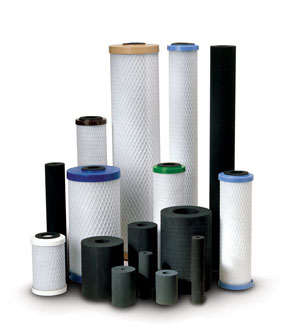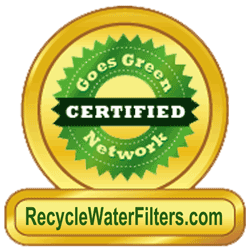Common Drinking Water Contaminents
Chloramines in Drinking Water
Chloramines are added in Municipal Water Treatment as a Dinsinfectant. Over 20% of all Americans use drinking water treated with chloramines. Their removal improves the taste and odor of drinking water. To protect the public, the U.S. Environmental Protection Agency changed many municipal regulations regarding disinfection creating broader use of chloramines in water supplies rather than chorine alone. Aqueous chlorine reacts with certain organic materials present in water sources to form trihalomethanes (THMs). Long-term exposure to these harmful byproducts of disinfection has been linked to an increased risk of cancer and infant birth delivery problems. It is estimated that THMs in drinking water are responsible for as many as 2-17 percent of the bladder cancers diagnosed each year in the United States. Chloramines are used for disinfection in chloramination by adding anhydrous or aqueous ammonia before or after adding chlorine. This will produce monochloramine. Nitrosamines can be generated as byproducts from use of chloramines. They are strongly suspected of being a human carcinogen. Cell damage and DNA mutations may occur and lead to cancer even at low levels of exposure.
POE Point-of-Entry and POU Point-of-Use Water Teatment Mehods for Chloramines Removal
. Chloramines are small, stable molecules that are difficult to remove by distillation, reverse osmosis or ion exchange resins alone. New types of Activated Carbon and Catalytic Activated Carbon have been developed with increased catalytic activity that is especially effective at the removal of chloramines. The chloramines are turned into chlorides by a catalytic process in the specialty carbon filters. The removal of these catalytic byproducts can be achieved by additional treatment by ion exchange resins or by reverse osmosis. These filters can be a great option as the 3rd stage in a 5 stage reverse osmosis system offering a more complete and unified solution for homeowners.




